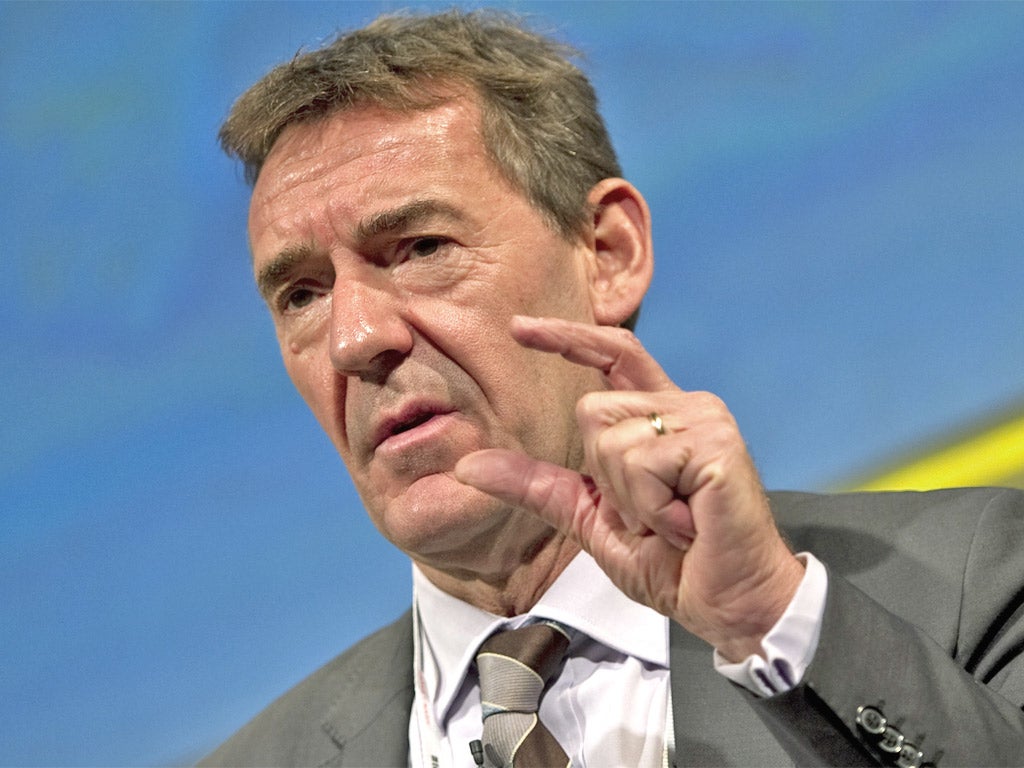Hamish McRae: At last we're correcting the errors of the boom years
The big question now is whether there has been permanent damage


What happens next? There is always a sense of unease in August, a feeling that there are autumn storms just around the corner, but this year all has been pushed aside by the triumph of the Olympics. So will those concerns now return with a bang? Or do we just resume the long trudge of correcting the errors of the boom years and wishing we had less of a headwind as we did so?
Although it is five years since the banking crisis began, it is four years since the end of the long boom. The Beijing Olympics marked that. While quite a few of us had warned that recession was likely, hardly anyone foresaw its depth and duration. We did not have sufficient sense of foreboding then, as it happened. And yet if you take the FTSE 100 index as a crude proxy for general optimism about the state of the world economy, we are modestly more positive than we were then: on 15 August 2008, it closed at 5432, materially lower than it is now.
I suppose the big question is whether there has been permanent damage to the world's growth potential, and more parochially the UK's. Jim O'Neill of Goldman Sachs pointed out in his latest newsletter that, from 2004 to 2007, the world economy averaged between 4 and 5 per cent annual growth, but from 2008 onwards it averaged only 2.25 per cent. In the developed world, growth in the earlier period ran at around 3 per cent, while in the latter period it has been just 0.3 per cent. He notes that "all these numbers typify why the mood is so understandably bleak", and asks: "How can the future look brighter?"
The first issue he ponders is whether some present policies may be making matters worse. Thus the increased solvency requirements on pension providers and banks are making the former switch funds into "safer" assets – government securities rather than company bonds and rights issues – and the latter simply cut their lending. Arguably, quantitative easing may have made companies more cautious, with any reduction in their funding costs more than offset by increases in their pension deficits.
He notes the various current concerns, from the problems of the eurozone to the slowdown in China, but he also points out that, in some fundamental ways, the world economy is more balanced now than it was in 2007. Then the US savings rate was 2.1 per cent of income, whereas now it is 4.4 per cent. The US trade deficit is now 3.5 per cent of GDP, whereas it was more than 6 per cent. China's surplus has, proportionately, just about halved.
I would add a UK statistic: equity withdrawal. Whereas in 2007 we had experienced nearly a decade during which people increased borrowings against their homes and used this to boost their standard of living, since then we have had four years where people have, on balance, paid back mortgage debt.
Of course, there is one imbalance that has grown massively since 2007 in just about every developed country, which is the public sector deficit. But a start has been made in correcting that. Further, if the calculations of revenue and spending back in the boom years were made on the unsustainable assumption that strong growth would continue for ever, at least our public debt figures now are more realistic – you could say more honest – than they were then.
None of this fully answers Jim O'Neill's question. What it does do is to put our present concerns into perspective. Correcting the errors of the boom years was always going to be painful. The process has proved more painful than most people expected, but there has been progress nonetheless. Maybe there will be another big blow in the weeks ahead, but we should also recognise that the healing is under way.
Freddie Mac shows the way
There has been a welter of information about the world economy in the past few days, ranging from confirmation of recession in Europe (though not in Germany) to some scruffy inflation figures here.
But in this "let's-stand-back" spirit noted to the left, the one thing I find myself returning to is US house prices. That is where the catastrophe of the past five years began, with the sub-prime mortgage crisis, and arguably it is where it will end. So what is the news?
Well, the US has just had the largest quarterly increase in house prices for seven years, up by 4.8 per cent in the three months to June.
As a result, Freddie Mac, the mortgage guarantee company formally taken over by the US government four years ago, has started to make decent profits. There is still a huge overhang of distressed properties for sale, and Freddie Mac is still losing nearly 40 cents on every dollar it has lent as these houses come on to the market at big discounts. But, slowly, the discounts are shrinking and the inventory is being cleared.
So there is no sudden recovery in the market; just the very gradual healing of a very sick patient. But given where we've been, that is progress.
Join our commenting forum
Join thought-provoking conversations, follow other Independent readers and see their replies
Comments
Bookmark popover
Removed from bookmarks